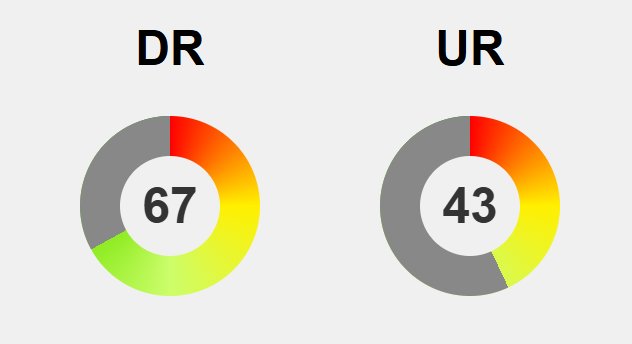Could returning to our ancestors’ natural eating rhythms unlock profound health and longevity benefits? This compelling exploration reveals that eating less frequently and stopping before full may activate metabolic shifts similar to those our ancestors experienced—shifting from fat storage to fat burning, enhancing insulin sensitivity, and activating cellular repair processes like autophagy. These ancient patterns, rooted in survival and seasonal scarcity, foster gut health, mental clarity, and stable energy levels today. Modern practices like intermittent fasting and time-restricted eating echo these rhythms, helping us reconnect with our biological design. Scientific evidence continues to build, showing how mindful eating and extended fasting can slow aging and reduce inflammation. As technology makes these principles more accessible, the question remains: could embracing our evolutionary blueprint truly pave the way for a healthier, longer life? The answer may lie in rediscovering the wisdom of our ancestors—an insight that could transform our approach to wellness.
Rediscovering Our Ancient Eating Rhythms
Throughout human history, our ancestors followed eating patterns that are quite different from many modern diets. Instead of eating multiple small meals throughout the day, they often consumed only once or twice daily, sometimes going long stretches without food. This wasn’t a conscious effort to diet but a natural response to their environment, food availability, and the demands of survival. Their meals were shaped by hunting, gathering, and seasonal changes, leading to irregular and often sparse eating habits that prioritized necessity over pleasure.
These patterns allowed their bodies to rest and reset. Eating until just before feeling full helped prevent overeating and kept their digestive systems from becoming overwhelmed. This natural pause gave their bodies a chance to focus on repair and recovery, supporting metabolic health and energy regulation. It wasn’t about counting calories but about tuning into internal hunger signals and responding accordingly. Over thousands of years, these habits influenced human evolution, helping our ancestors adapt to unpredictable food supplies by becoming efficient with energy—storing excess during times of plenty and conserving during scarcity.
Today, many of us have lost touch with these ancient rhythms, caught up in constant eating, snacking, and the endless availability of food around the clock. Modern routines often push us to eat more frequently than our bodies need, disrupting natural hunger cues and metabolic balance. Understanding these ancestral eating habits offers valuable insights into how our bodies are naturally designed to operate—responding to cues of hunger and stopping before full. Reconnecting with these patterns isn’t about strict dieting but about mindful practices like paying attention to hunger signals, savoring each bite, and stopping before overeating.
Embracing this perspective can lead to better digestion, improved appetite regulation, and a more balanced relationship with food. It’s a gentle reminder that sometimes, less is more, and listening to our bodies may be the most natural way to support long-term health. By adopting these old patterns—eating less frequently and stopping before fullness—we align ourselves more closely with our biological design. This shift not only honors our evolutionary history but also fosters a sustainable approach to wellness in today’s busy world.
The Scientific Power of Eating Less and Mindful Portions
Recent research strongly supports the idea that eating less often and practicing mindful portion control can significantly boost health. Studies show that reducing meal frequency improves key metabolic markers like insulin sensitivity and fat oxidation, both essential for preventing diabetes and obesity. Practices such as intermittent fasting and time-restricted eating—both inspired by ancient patterns—have been linked to decreased inflammation and enhanced cellular repair processes, including autophagy. These natural mechanisms help clear out damaged cells and support tissue renewal, which may extend lifespan and reduce age-related illnesses.
When we eat constantly, our bodies tend to stay in a storage mode, perpetually processing and storing excess energy. Conversely, eating less frequently shifts the body into a fat-burning state, especially during fasting periods when insulin levels fall. This signals the body to burn stored fat for fuel, leading to weight loss and better blood sugar regulation. Over time, these shifts make our physiology align more closely with its natural design, which evolved to handle periods of scarcity and abundance. This metabolic flexibility not only prevents chronic disease but also fosters a more stable energy flow throughout the day.
Reducing meal frequency also plays a crucial role in lowering chronic inflammation, a key driver of many age-related conditions. Stabilized blood sugar and insulin levels—achieved through fewer meals—decrease spikes that trigger inflammation. This allows the immune system to reset and function more effectively, supporting overall health. Additionally, giving the digestive system regular breaks by stopping before full can reduce gastrointestinal issues like bloating and promote gut health, which is central to controlling inflammation.
Mindful portion control, where you stop eating before reaching that uncomfortable fullness, naturally encourages calorie moderation without calorie counting or restrictive dieting. This approach fosters a more intuitive relationship with food, helping individuals develop trust in their hunger signals. Over time, people often find they need fewer calories to feel satisfied, making these habits sustainable and easy to incorporate into daily routines.
Extended fasting activates a process called autophagy, where damaged cells are broken down and recycled. This cellular “spring cleaning” is linked to slowing aging and preventing degenerative diseases. Regular activation of autophagy through fasting helps reduce inflammation and cellular damage, supporting longevity and overall vitality. Scientific evidence continues to uncover how these evolutionarily rooted processes can be harnessed to promote a longer, healthier life.
Moreover, these practices tend to stabilize energy levels. Many people report feeling more consistent throughout the day when they avoid frequent eating and blood sugar spikes. The body learns to run efficiently on its own reserves, reducing energy crashes and promoting mental clarity. This natural rhythm aligns with our biological programming, offering a sustainable way to enhance both physical and cognitive well-being.
As science advances, the understanding of how ancestral eating patterns influence health deepens. Researchers are exploring how fasting and autophagy impact cellular health, longevity, and disease prevention. With new tools like apps and wearable devices, tracking fasting periods and optimizing routines becomes easier, making these natural practices more accessible. This growing body of evidence suggests that aligning our eating habits with our evolutionary history holds promise for a healthier, longer life.
Modern Practices That Mirror Our Ancestors’ Diets
Today, many people are finding ways to incorporate ancestral eating principles into their busy modern lives. One popular method is intermittent fasting, which typically involves fasting for about 16 hours each day, leaving an 8-hour window to eat. This approach echoes the natural rhythms of our ancestors, who didn’t eat constantly but experienced longer stretches without food. It’s simple to fit into a hectic schedule and has been linked to improved metabolic health and weight management.
Another common adaptation is time-restricted eating, where food intake is limited to specific hours—say, late morning to early evening—and extended fasting occurs overnight. This aligns with our internal biological clock and the idea of stopping before feeling overly full. Many find it easier to sustain than stricter fasting routines because it still allows social meals and daily routines while respecting natural hunger cues. It’s a flexible way to incorporate ancient principles without feeling deprived.
Some people choose to skip breakfast or delay it until later in the morning, shifting from three meals a day to two. This practice mirrors times of scarcity when early humans ate less regularly. It also supports better digestion and reduces unnecessary snacking. By focusing on fewer, more substantial meals, individuals can foster a more intuitive relationship with food, paying attention to hunger instead of external cues.
Cultural traditions across the globe also reflect these ancient habits. Many societies have long-standing practices of longer overnight fasts or skipping certain meals, naturally limiting eating frequency. These routines often develop without formal planning, becoming ingrained parts of daily life that honor the body’s natural signals. Such practices demonstrate that less frequent eating is a time-tested approach rooted in human history.
Adapting these principles doesn’t mean strict rules or rigid routines. Instead, it’s about gentle adjustments—like gradually reducing meal frequency or listening more carefully to hunger. For example, shifting from three meals to two, or delaying breakfast, can be personalized to fit individual schedules and preferences. This flexibility makes the habits sustainable and more likely to stick long-term.
Incorporating these habits often involves some initial challenges, such as mild hunger or adjusting to new routines. Staying hydrated and choosing nutrient-dense, satisfying foods can ease the transition. Over time, your body begins to trust these cues, and hunger pangs diminish as your metabolism shifts toward a more balanced state. Patience and consistency are key.
Social and work commitments can influence your ability to maintain these habits. Communicating your goals with friends or family can foster support, and making small tweaks—like having a hearty meal earlier or later—helps accommodate daily routines. Remember, the goal isn’t perfection but creating a sustainable rhythm that aligns with your body’s natural signals.
Ultimately, these practices are about respecting your body’s ancient wisdom. Stopping before full and eating less frequently can reduce overeating and promote better digestion, all while fostering a healthier, more intuitive relationship with food. Gradually, these small shifts can lead to lasting changes, helping you reconnect with the natural eating patterns our ancestors relied on for survival and well-being.
By embracing these time-honored principles, many find they develop a deeper awareness of their body’s signals and needs. Exploring resources on natural eating patterns can provide further guidance and inspiration. For those interested in learning more about how ancient dietary habits influence modern health, you can read about the benefits of natural eating habits here.
Seamlessly Incorporating Ancestral Eating into Daily Life
To incorporate ancestral eating principles into your daily routine, start with simple, manageable adjustments that fit your lifestyle. If you typically eat three meals a day, try shifting to two larger, well-balanced meals spaced several hours apart. Focus on tuning into your natural hunger cues and aim to stop eating before reaching that overfull, uncomfortable feeling. This practice encourages mindfulness, helping you reconnect with your body’s signals that often get drowned out by modern routines.
Next, consider gradually extending your overnight fasting period. If breakfast has been a regular part of your day, try delaying it by an hour or two, or even skipping it a few times to observe how your body responds. Giving your digestive system a longer break allows it to reset and aligns with how our ancestors likely experienced long stretches without food. When you do eat, prioritize nutrient-dense foods that satisfy without excess, and serve smaller portions. Savor each bite slowly, paying close attention to when you feel comfortably full, not stuffed.
Adjusting your routine might come with some initial challenges, like mild hunger or fatigue. Staying well-hydrated and including fiber-rich, nourishing foods can ease these transitions. Over time, your body will adapt, and hunger pangs will lessen as your metabolism shifts toward a more balanced, efficient state. Patience and consistency are key—trust that your body is relearning how to signal when it truly needs fuel.
Social and work commitments can influence your ability to stick with these habits. If your schedule revolves around regular meals or snacks, try flexible adaptations like having a substantial meal earlier or later in the day or choosing lighter, satisfying snacks that fit your new rhythm. Sharing your goals with friends or family can foster support and understanding, making it easier to maintain these changes.
Remember, this isn’t about rigid rules or deprivation. It’s about respecting your body’s natural signals and rhythms. Stopping before full helps prevent overeating and reduces unnecessary calorie intake, all while fostering a more intuitive relationship with food. These small, consistent adjustments can gradually become part of your sustainable routine.
Experiment with different fasting windows—such as 12, 14, or 16 hours—and adjust portion sizes according to your needs. The goal is to listen closely to your body and adapt practices that feel natural and sustainable. Over time, these mindful shifts will help you reconnect with your biological rhythms, promoting better digestion, appetite regulation, and overall well-being.
This approach emphasizes gentle, incremental change rather than perfection. As you become more attuned to your hunger and fullness cues, eating less frequently and stopping before full can support a healthier, more balanced lifestyle rooted in your evolutionary history.
The Future of Fasting and the Evolution of Eating Habits
Emerging research continues to shed light on how ancestral eating patterns influence health and aging at the cellular level. Scientists are increasingly exploring how fasting and autophagy—the body’s natural cell-cleaning process—help clear damaged components and promote tissue regeneration. These mechanisms are linked to slowing age-related decline and reducing the risk of chronic diseases, suggesting that regular activation through natural rhythms can extend lifespan. As studies become more sophisticated, we’re gaining clearer insights into how meal timing and fasting protocols support longevity, reinforcing the idea that our evolutionary history still shapes our health today.
Advances in technology are making it easier to integrate these ancient principles into modern lifestyles. Apps and wearable devices now help track fasting periods, monitor nutrient intake, and optimize routines based on individual responses. This personalization allows people to tailor ancestral eating habits to their schedules, making these practices more accessible and sustainable. Moreover, real-time data collection from diverse populations enables researchers to understand how different fasting routines impact metabolic health across ages and backgrounds, paving the way for more precise guidelines.
The scientific community is gradually shifting its focus from purely calorie-centric advice to emphasizing the importance of meal timing and mindful eating. Future dietary guidelines are likely to prioritize when and how often we eat, alongside what we eat, as key factors in health and longevity. This evolution underscores that the biological benefits of fasting and reduced meal frequency are rooted in our evolutionary design, making these strategies not just trends but potentially integral parts of long-term wellness.
Innovation driven by this understanding is transforming the wellness industry. From specialized fasting protocols to nutrient-rich meal plans aligned with natural rhythms, new products and services are emerging to support these habits. Online communities, expert-led programs, and digital coaching now offer support, making it easier for individuals to adopt and sustain these routines. The goal is to embed ancestral eating principles into everyday life, not as fleeting fads but as lasting lifestyle choices rooted in science and tradition.
Looking ahead, the convergence of ongoing research, technological tools, and cultural shifts points to a future where eating habits are more closely aligned with our biological blueprint. Dietary recommendations may soon emphasize the timing of meals and gut health alongside nutrient quality, fostering habits that promote longevity, reduce inflammation, and enhance resilience. This holistic approach aims to not only extend lifespan but also improve quality of life, echoing the ancient wisdom that eating in tune with our bodies supports overall vitality.
As our understanding deepens, we can expect a broader acceptance of fasting and autophagy as foundational elements of health. New clinical trials and observational studies will clarify optimal routines, while innovations in personalized nutrition will help tailor practices to individual needs. These developments promise to make ancestral-inspired habits more mainstream, blending tradition with cutting-edge science for a more resilient, health-focused future.
The integration of science, technology, and cultural awareness signals a shift toward recognizing the importance of aligning modern lifestyles with our evolutionary history. This paradigm shift encourages a move away from restrictive dieting toward sustainable, rhythm-based habits that honor our biological design. As these practices become more mainstream, they have the potential to redefine health and longevity strategies, making natural, ancestral principles accessible and relevant for generations to come.
In essence, the future of ancestral eating lies in a harmonious blend of scientific validation and practical application. As research continues to validate the benefits of fasting and reduced meal frequency, society will increasingly adopt these patterns as standard health practices. This evolution offers a promising path toward longer, healthier lives rooted in the wisdom of our shared human story—one that respects our past to improve our future wellbeing.



